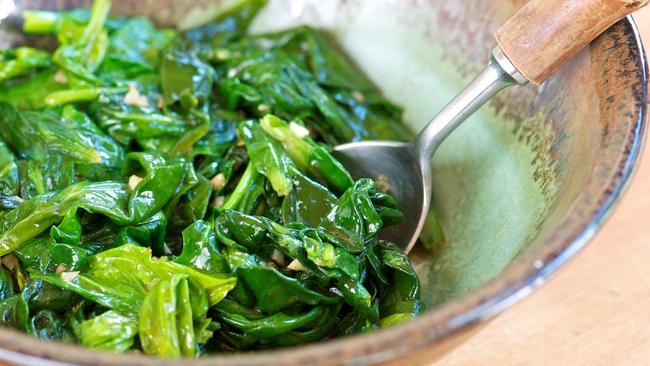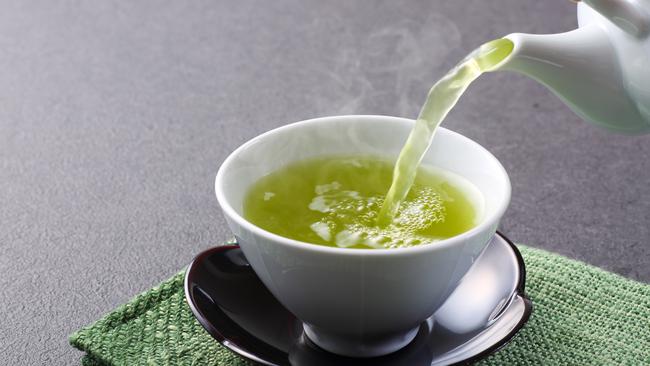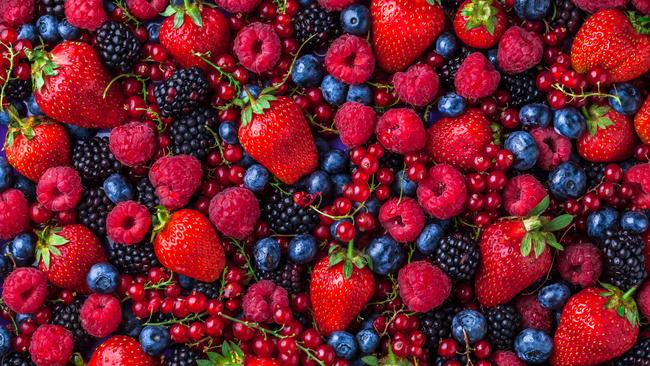What to eat to boost your mood
The key to feeling more positive could be in simple ingredients in your kitchen cupboard

Eat red meat — but not too much
In a study involving more than 1000 women published in the journal Psychotherapy and Psychosomatics in 2012, Australian researchers found that cutting out red meat completely was associated with raised anxiety levels, but so was eating more than the recommended daily upper limit (70g).

Unprocessed red meat contains high levels of nutrients, including the omega-3 fatty acids that are known to play an important role in maintaining mental health.
“When we looked at women consuming less than the recommended amount of red meat in our study, we found that they were twice as likely to have a diagnosed depressive or anxiety disorder as those consuming the recommended amount,” said Felice Jacka, study author and a professor of nutritional and epidemiological psychiatry at Deakin University.
Jacka’s team also reported that regularly eating more than the recommended amount of red meat was related to increased depression and anxiety.
Eat more yoghurt
Fermented foods that are known to be “gut-friendly” have been found to have a positive impact on mental health. “We know that gut microbes can communicate with our brain — a relationship known as the gut-brain axis — and are thought to impact our mental health in many ways,” says Dr Megan Rossi, a research fellow at King’s College London and a gut health specialist with a clinic in London.
In May last year a team of researchers at Shanghai Jiao Tong University School of Medicine reviewed 21 studies involving 1503 people that looked specifically at evidence that anxiety symptoms can be reduced by improving the health of your intestinal microbiota. Their results revealed that more than half of the studies showed that probiotic supplements or foods that regulated intestinal health had a positive effect on anxiety levels. Fermented foods, such as pickles, sauerkraut, kefir and yoghurt, seem to be particularly beneficial.

Eat spinach
Not only is it packed with antioxidants, vitamin K and B vitamins, spinach also contains tryptophan, an amino acid that stimulates the production of the happiness chemical serotonin. Since our bodies can’t make tryptophan, we need dietary sources (it is also found in eggs, fish and cheese) and eating spinach regularly will provide a good dose.
Researchers at Leiden University in the Netherlands reported in the journal Frontiers in Psychology that tryptophan consumption also increases people’s willingness to donate money to charity, which is another proven happiness booster.

Have at least two portions of oily fish a week
Omega-3 fatty acids, found predominantly in fish oil, have anti-inflammatory properties that researchers have suggested may help to relieve a range of mood disorders, including anxiety. In a review of 19 clinical trials involving 2240 people, researchers from the China Medical University Hospital saw a significant reduction in anxiety in participants taking supplements of omega-3 polyunsaturated fatty acids compared with those taking a placebo.
A supplement may not be necessary if you get omega-3s from your diet, though. “Eating fatty fish that includes EPA and DHA (types of omega-3) is more natural,” said Dr Yutaka Matsuoka, one of the authors. “I recommend mackerel, sardines, tuna or salmon.” You would need to eat two to four portions of oily fish each week to reap the benefits.

Drink green tea
Several research papers have shown that drinking at least 100ml (about half a cup) of tea a day — your average brew, green or matcha (made from the ground leaves of green tea) are all good — lowers levels of the stress hormone cortisol and seems to reduce the risk of anxiety and depression. The reason seems to be the high levels of antioxidants in tea and the presence of the amino acid L-theanine, known for altering brain function including reducing stress and promoting mental relaxation.
In June last year a group of researchers from Kumamoto University in Japan showed how anxiety levels in mice were reduced after they were given matcha tea powder. Its calming effects appear to be due to compounds it contains that activate serotonin and dopamine receptors, both linked to better mood and calmness.

Eat more berries
Berries such as cranberries, blueberries and strawberries are rich in flavonoids, the antioxidants that have been shown to help lower anxiety levels. University of Reading researchers have shown how flavonoid-rich foods have a significant positive effect on mood. Dr Daniel Lamport, an associate professor in psychology and nutrition at the university, says in young people who drank 500ml of a berry-based fruit juice, made from the equivalent of 220g of fresh blueberries, “their brains responded positively within two hours and there were improvements in their cognitive performance, alertness and mood”.
Findings from the University of Otago, published in 2018, also showed that a good intake of raw fruits, including berries, is linked to reduced anxiety and depressive symptoms. “All berries provide beneficial antioxidants and getting a wide variety is by far your best bet,” says the dietician Helen Bond.
The Times



To join the conversation, please log in. Don't have an account? Register
Join the conversation, you are commenting as Logout